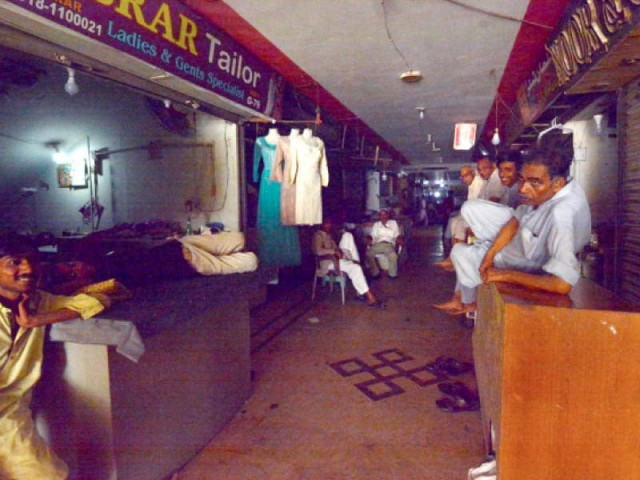Traders resent govt’s energy-saving scheme
Anyone found to be in non-compliance with the 9pm market shutdowns to be prosecuted under Section 188 PPC

In the midst of a national fuel and power crisis, the government had imposed an electricity saving programme in the province a few weeks ago, whereby all markets and businesses in Sindh, including the port city, were required to shut down by 9pm.
In theory, this scheme was supposed to significantly reduce the provincial electricity shortfall if enforced with an iron fist, while anyone found to be in non-compliance of the strategy was to be prosecuted under Section 188 of the Pakistan Penal Code (PPC).
However, Karachi has always been a city that thrives after dark, as businesses, markets and restaurants wake up late in the day and stay open till wee hours, affording the city its famous nightlife. Considering which, the city’s businesses had rejected the government’s plan. A similar sentiment was also expressed by All Pakistan Traders Association President Ajmal Baloch who said that the traders of Sindh would not close their businesses at 9pm under any circumstances.
Almost 20 days after the government’s announcement of the new law, it appears that the traders in Karachi, especially those in the inner parts of the city, have held to their statement; continuing to stay open till late hours of the night. For them, the new scheme offers no reprieve from extensive load shedding hours so far, which means that they still have to rely on generators for most of the day. “It has been a few weeks and this scheme hasn’t led to any change in load shedding hours despite closure of major markets by 9m,” commented Haji Azhar, a shopkeeper at Denso Hall Market. “We are still out of power for most of the day and have to pay for generator fuel on top of increased electricity tariffs. Most of the city comes alive after sunset in this season, so if we curb our peak business hours by closing early, how are we going to make any money?” he questioned.
Many of Karachi’s business owners, like Azhar, now appear to be losing trust in the government’s decision, inching towards acts of rebellion. Per Danish, who runs a home appliances store in the city, the electricity saving scheme has failed. “It was enforced to curb load shedding hours but the electric supply company has only increased our power outages and also increased the frequencies of unplanned outages,” he said, offering an explanation for his verdict on the government’s scheme.
Speaking in the regard, Karachi Tajir Itehad President Atiq Mir said that the city’s business community is severely troubled by the ongoing economic crisis, the effects of which have been increased by manifolds due to the increased load shedding. “The government should immediately end the implementation of these restrictions and business areas should be exempted from load shedding,” he urged.
Per Energy Minister Imtiaz Ahmed Sheikh, the Sindh government, at the behest of the federal government, has imposed restrictions in view of the energy crisis but the duration of load shedding in Karachi has become very long. Acknowledging the citizen’s plight, he said that K-Electric has been asked to use all its resources to generate additional power. “The Sindh government is trying to reduce the load shedding time in Karachi, but I also appeal to the people to reduce their own usage of electricity so that the government and the people can meet halfway,” he told.
A spokesperson for K-Electric, when asked regarding the matter, confirmed that the electricity company is using all its resources to reduce load shedding in Karachi, adding that the duration and frequency of power outages will soon be reduced.
Published in The Express Tribune, July 5th, 2022.


















COMMENTS
Comments are moderated and generally will be posted if they are on-topic and not abusive.
For more information, please see our Comments FAQ